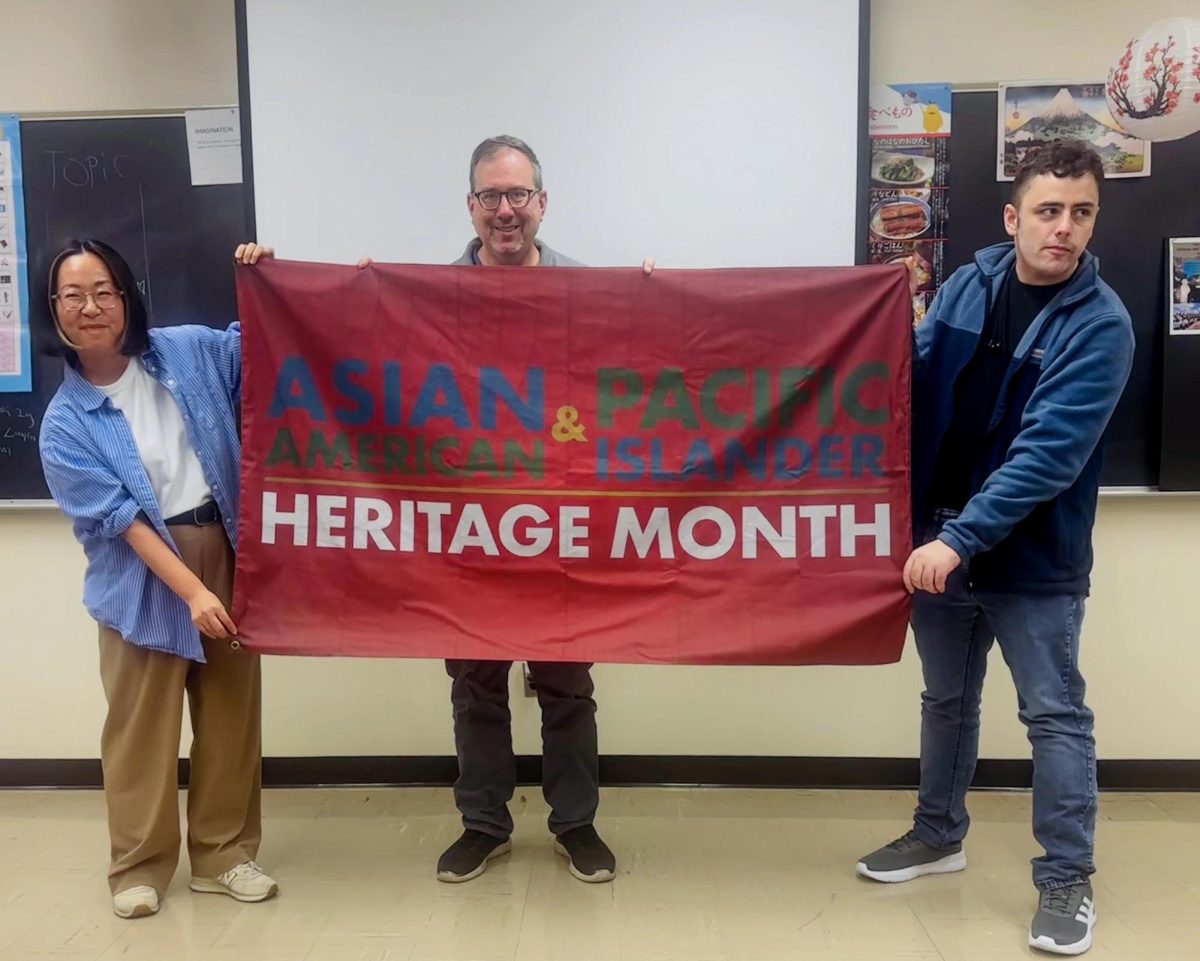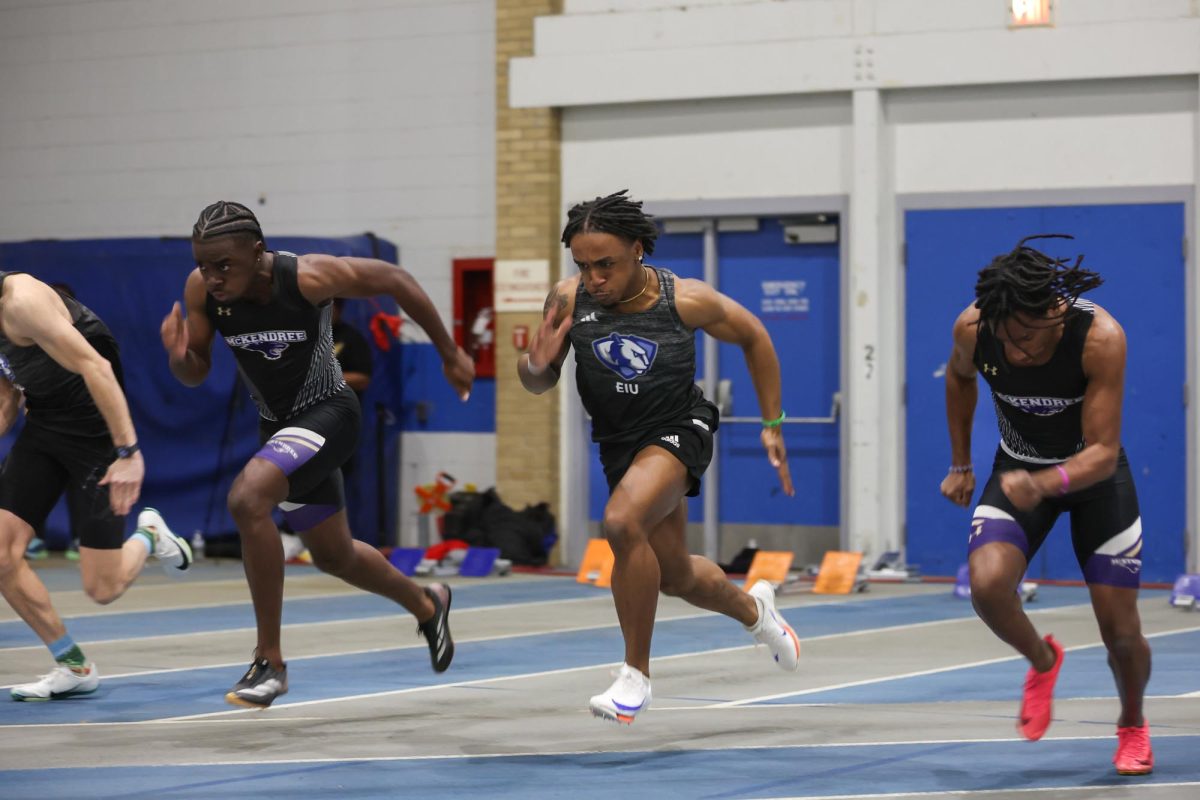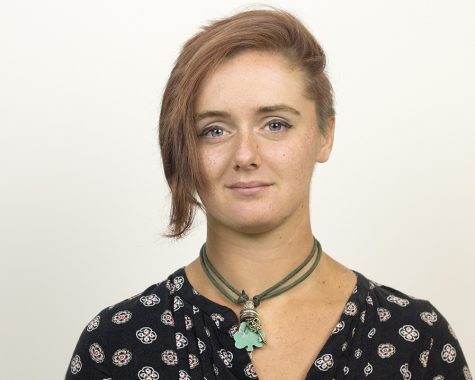Calm discussion can lead to understanding
September 27, 2017
An evangelical Christian and an atheist walk into a coffee shop.
No, I am not telling a joke.
Last week, Stephen Lucas and I had coffee and a 90-minute discussion in Java. Lucas is a professor in the education department, where he teaches secondary education and foundations courses. He is a self-described evangelical and is active in his Urbana church.
He sat down with me, a self-described atheist, to hear about the doubts my generation often has with organized religion. We talked about the ways that young atheists and agnostics find their morals and their places in the world as well as how the older, more religious crowd could find common ground.
It was a great conversation; about halfway through, I wished I had recorded it. We both worked out the fine points of our moral understandings and we learned a good deal about each other’s worldviews. At the end, we both walked away with things to ponder about each other and about ourselves.
I think that is the mark of a good conversation: you end up with as many questions as you started with, but they are all different ones. There is room for growth on top of what growth has already happened.
Scattered around us in Java while we talked were other groups. Some folks discussed classes and others discussed society and culture. I like to think that all these coffee-facilitated discussions, from the superficial to the entertaining to the philosophical, helped those engaged learn and grow just a little bit.
I believe deeply in the power of discussion. It is a proven classroom tool—it endures well into the digital age even when other ancient learning methods shrivel up. We play ideas, fragmented and whole, off each other and refine them through peer inquiry and through our own mental-to-verbal translations. There are some ideas that can only transform, I believe, by letting them escape the confines of the brain.
My classmates from the English department are probably very familiar with discussion and its benefits, but some other students might be more accustomed to a more passive education. For these students, I highly recommend peer discussion as a way to deepen your learning.
Your discussions do not have to be about class materials. They can be about anything from social trends to politics to films. Lucas and I talked about science fiction and managed to both learn a little about the genre—anything is fair game if you can hold a detailed, thoughtful conversation about it.
Finally, I encourage the reader to discuss with someone very different from themself. Finding common ground in unexpected places is always a pleasure.
Shelby Niehaus is a senior English language arts major. She can be reached at 581-2812 or scniehaus@eiu.edu.













![[Thumbnail Edition] Junior right-handed Pitcher Lukas Touma catches at the game against Bradley University Tuesday](https://www.dailyeasternnews.com/wp-content/uploads/2025/03/MBSN_14_O-e1743293284377-1200x670.jpg)

![[Thumbnail Edition] Senior Foward Macy McGlone, getsw the ball and gets the point during the first half of the game aginst Western Illinois University,, Eastern Illinois University Lost to Western Illinois University Thursday March 6 20205, 78-75 EIU lost making it the end of their season](https://www.dailyeasternnews.com/wp-content/uploads/2025/03/WBB_OVC_03_O-1-e1743361637111-1200x614.jpg)







































![The Weeklings lead guitarist John Merjave [Left] and guitarist Bob Burger [Right] perform "I Am the Walrus" at The Weeklings Beatles Bash concert in the Dvorak Concert Hall on Saturday.](https://www.dailyeasternnews.com/wp-content/uploads/2025/03/WL_01_O-1200x900.jpg)
![The team listens as its captain Patience Cox [Number 25] lectures to them about what's appropriate to talk about through practice during "The Wolves" on Thursday, March 6, in the Black Box Theatre in the Doudna Fine Arts Center in Charleston, Ill.](https://www.dailyeasternnews.com/wp-content/uploads/2025/03/WolvesPre-12-1200x800.jpg)
















